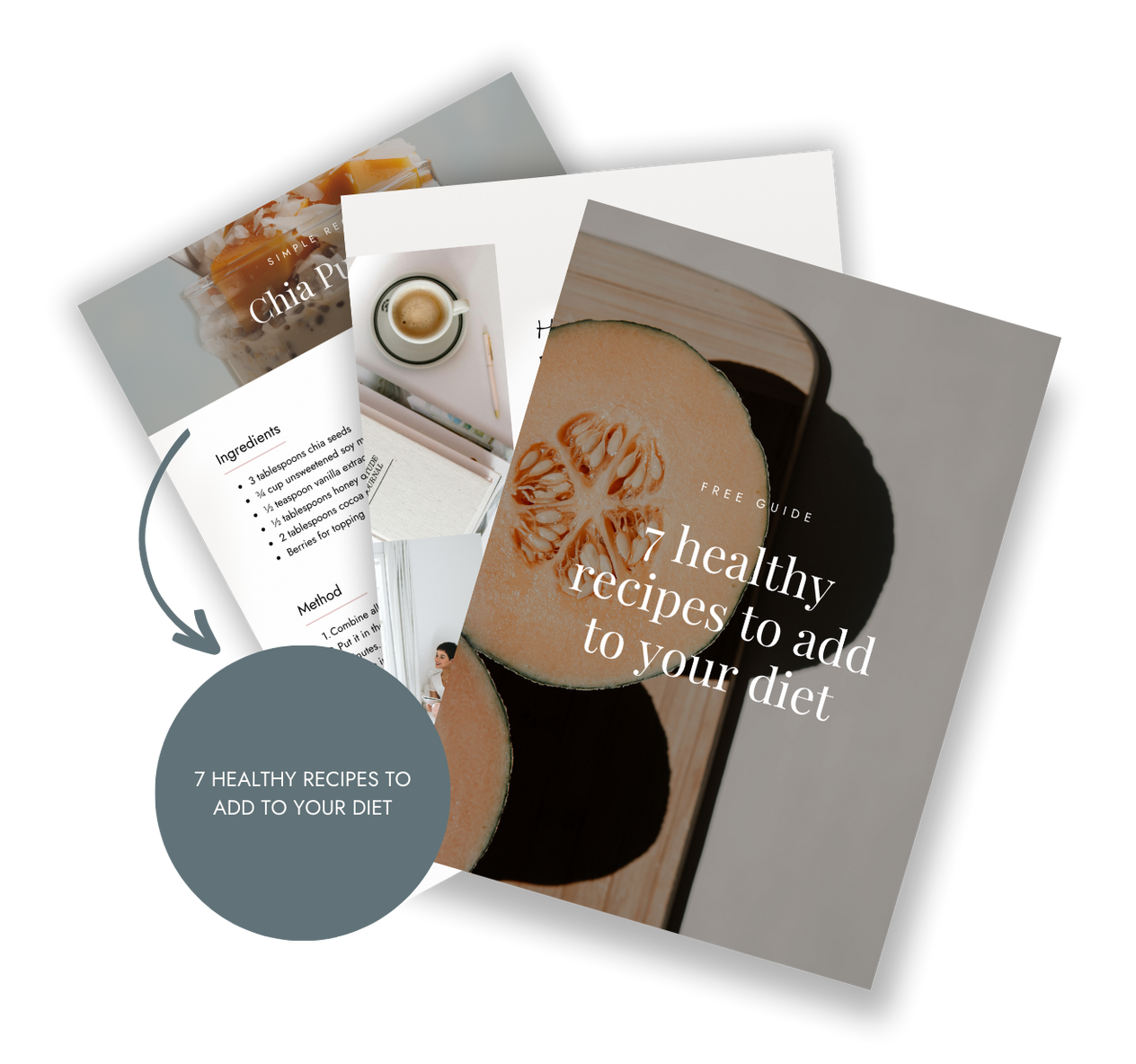Foods to Avoid with Thyroid Issues: The Ultimate Guide
At Elle MD, we understand that managing thyroid health involves more than just medication. Your diet plays a critical role in supporting thyroid function and overall well-being. Certain foods can exacerbate thyroid symptoms, making it crucial to know which ones to avoid.
In this article, we will explore the foods to avoid with thyroid issues, focusing on processed foods, sugars, and specific ingredients that can negatively impact thyroid function, along with healthy, thyroid-safe alternatives.
Understanding Thyroid Function
The thyroid gland, located in the neck, produces hormones that regulate metabolism, energy levels, and overall bodily functions. Conditions such as hypothyroidism (underactive thyroid) and hyperthyroidism (overactive thyroid) can disrupt these processes, leading to a variety of symptoms such as fatigue, weight changes, and mood fluctuations. Diet plays a vital role in managing these conditions, as certain foods can either support or hinder thyroid function. Hence the need to know which foods to avoid for thyroid issues.
Processed Foods to Avoid for Thyroid Health
One of the primary foods to avoid with thyroid issues is processed food. Processed foods are typically high in unhealthy fats, sodium, and additives that can interfere with thyroid function. Here’s why you should steer clear of them, along with healthier alternatives:
1. High Sodium Content
Processed foods often contain excessive amounts of sodium, which can be detrimental for individuals with thyroid issues, particularly those with hyperthyroidism. High sodium intake can exacerbate symptoms such as hypertension and negatively impact overall cardiovascular health.
Alternative:
Opt for fresh, whole foods such as fruits, vegetables, lean meats, and whole grains. Use herbs and spices to flavor your meals instead of salt.
2. Unhealthy Fats
Many processed foods are high in trans fats and saturated fats. These unhealthy fats can lead to inflammation and may disrupt the production of thyroid hormones. Maintaining a diet low in unhealthy fats is crucial for supporting thyroid function and reducing inflammation.
Alternative:
Choose healthy fats such as those found in avocados, nuts, seeds, and olive oil. These fats can help reduce inflammation and support thyroid health.
3. Additives and Preservatives
Processed foods often contain additives and preservatives that can interfere with thyroid hormone production and function. These chemicals can act as endocrine disruptors, further complicating thyroid health. Avoiding processed foods helps minimize exposure to these harmful substances.
Alternative:
Focus on whole, unprocessed foods and prepare meals at home to control the ingredients you consume.
Sugars to Avoid for Thyroid Health
Another critical category of foods to avoid with thyroid issues is sugar. High sugar intake can lead to various health problems, including those related to thyroid function. Here’s how sugars can impact your thyroid, along with healthier options:
1. Blood Sugar Spikes
Consuming high amounts of sugar can lead to rapid spikes and crashes in blood sugar levels. These fluctuations can stress the adrenal glands, which are closely connected to thyroid function. Consistent blood sugar imbalances can worsen thyroid symptoms and lead to further hormonal disruptions.
Alternative:
Opt for natural sweeteners such as honey, maple syrup, or stevia in moderation. Focus on whole fruits for a naturally sweet treat.
2. Weight Gain
Excessive sugar intake can contribute to weight gain, which is particularly concerning for individuals with hypothyroidism. Weight management is crucial for maintaining thyroid health, and reducing sugar intake can help prevent unwanted weight gain and support metabolic balance.
Alternative:
Satisfy your sweet tooth with nutrient-dense snacks such as berries, nuts, and dark chocolate in moderation.
3. Inflammation
High sugar diets can lead to increased inflammation in the body. Chronic inflammation is known to interfere with thyroid function and can exacerbate symptoms in individuals with thyroid issues. Reducing sugar consumption is essential for minimizing inflammation and supporting overall health.
Alternative:
Incorporate anti-inflammatory foods such as leafy greens, fatty fish, and turmeric into your diet.
Specific Foods to Avoid with Thyroid Issues
In addition to processed foods and sugars, there are specific ingredients that can negatively impact thyroid health, introducing more foods to avoid with thyroid issues. Understanding these ingredients and how they affect thyroid function can help you make informed dietary choices, along with healthier substitutes:
1. Gluten
For some individuals, gluten can be problematic, particularly those with autoimmune thyroid conditions such as Hashimoto’s thyroiditis. Gluten can trigger an immune response that may worsen thyroid symptoms. Avoiding gluten-containing foods such as wheat, barley, and rye can help manage thyroid issues.
Alternative:
Choose gluten-free grains such as quinoa, rice, and buckwheat.
2. Soy Products
Soy contains compounds called goitrogens that can interfere with thyroid hormone production. While moderate consumption may be acceptable for some, individuals with thyroid issues should be cautious with soy-based foods such as tofu, soy milk, and edamame.
Alternative:
Consider non-goitrogenic protein sources such as legumes, beans, and lean meats.
3. Cruciferous Vegetables
Cruciferous vegetables, including broccoli, cauliflower, and Brussels sprouts, also contain goitrogens. When consumed in large amounts, these vegetables can inhibit iodine uptake by the thyroid gland, potentially disrupting hormone production. Cooking these vegetables can reduce their goitrogenic effects, but moderation is key.
Alternative:
Enjoy a variety of cooked vegetables such as spinach, carrots, and zucchini, which are less likely to interfere with thyroid function.
4. Caffeine
Caffeine can interfere with thyroid hormone absorption and exacerbate symptoms such as anxiety and heart palpitations in individuals with hyperthyroidism. Limiting caffeine intake from sources such as coffee, tea, and energy drinks is advisable for those managing thyroid issues.
Alternative:
Opt for caffeine-free herbal teas and beverages to stay hydrated without the adverse effects of caffeine.
5. Alcohol
Alcohol can negatively impact thyroid hormone levels and disrupt overall endocrine function. Reducing or eliminating alcohol consumption can help support thyroid health and improve symptom management.
Alternative:
Choose non-alcoholic beverages such as sparkling water, herbal teas, and naturally flavored water.
Practical Tips for a Thyroid-Friendly Diet
Now that we’ve covered the foods to avoid with thyroid issues and their alternatives, here are some practical tips for creating a thyroid-friendly diet:
1. Focus on Whole Foods
Emphasize a diet rich in whole, unprocessed foods such as fruits, vegetables, lean proteins, and healthy fats. These foods provide essential nutrients that support thyroid function.
2. Balance Your Macronutrients
Ensure your diet includes a balance of carbohydrates, proteins, and fats. This balance helps maintain stable blood sugar levels and supports overall metabolic health.
3. Stay Hydrated
Proper hydration is crucial for thyroid function. Drink plenty of water throughout the day to support your body’s metabolic processes.
4. Monitor Iodine Intake
Iodine is essential for thyroid hormone production. Ensure you get adequate iodine from sources such as iodized salt, seafood, and dairy products. However, avoid excessive iodine, as it can also disrupt thyroid function.
5. Consult with a Professional
Working with a functional medicine practitioner can provide personalized dietary recommendations tailored to your specific thyroid condition and overall health needs.
Stay Healthy, Vibrant, and Satisfied with Help from Nutrition Professionals
Managing thyroid health requires a comprehensive approach that includes careful dietary choices. By understanding the foods to avoid with thyroid issues – such as processed foods, sugars, and specific ingredients – and incorporating healthier alternatives, you can better support your thyroid function and overall well-being.
At
Elle MD, we are dedicated to providing you with the knowledge and support you need to thrive. If you have thyroid issues and wonder which foods to avoid,
consult with our experts to create a personalized plan that promotes optimal health and vitality.
*AI Disclosure:
This content may contain sections generated with AI with the purpose of providing you with condensed helpful and relevant content, however all personal opinions are 100% human made as well as the blog post structure, outline and key takeaways.
* Affiliate Disclosure: Some of the links on www.elle-md.com may contain affiliate links meaning that we will get a commission for recommending products at no extra cost to you.
*Blog Disclaimer: Please note that reading our blog does not replace any health or medical advice consultation. Read our blog disclaimer here.

Meet the Drs.
Dr. Hendriks and Dr. Castillo MacKenzie are board-certified physicians, female, specialized, with over 10 years of experience.
Elle MD started after practicing in a traditional primary care setting together for over a decade. We grew frustrated with the current healthcare model, which places no emphasis on addressing the root cause of chronic disease. A lot of times, conventional care doesn’t even promote overall wellness!
We founded Elle MD in Royal Oak, MI, with a vision of providing this care in a compassionate and personalized way.
Download your free guide


Contact us and get started on this journey today.
Contact Us
Thanks for your request!
We'll get back to you as soon as we can.
Please try again later.
Functional Medicine and Medical Weight Loss Clinic located in Royal Oak, and serving patients all across the state of Michigan.
Contact
Design by Natalia Maganda












